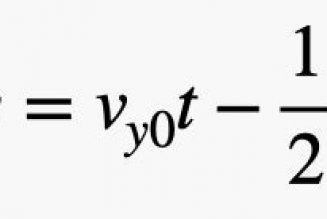The readings for the Fourth Sunday of Lent Year B look at the way the death and resurrection of Jesus Christ is built into the very warp and woof of the cosmos.
That’s a beautiful lesson but also a difficult one, because it says that we will only be fruitful if we are willing to suffer with Jesus and for those he loves.
Before looking at how the Gospel begins, please notice how it ends.
The Gospel reading ends with an amazing glimpse at the inner dialogue of the Trinity, which shows the “humility” of God — the Son glorifying the Father and the Father honoring the Son.
This is from the 12th chapter of John, just after his triumphal entry into Jerusalem. Holy Week has begun, the week that Jesus begins by hearing “Hosanna!” and ends by hearing “Crucify him!” John’s Gospel doesn’t share the story of the Agony in the Garden, when Jesus prays, “Father, if you are willing, take this cup away from me; still, not my will but yours be done.”
Instead, in John, we get to hear both sides of that conversation in this Sunday’s Gospel.
Jesus says: “The Father will honor whoever serves me. I am troubled now. Yet what should I say? ‘Father, save me from this hour’? But it was for this purpose that I came to this hour. Father, glorify your name.” The Father answers from heaven: “I have glorified it and will glorify it again.”
In other words, Jesus suggests that he might want out of this whole thing, but for the sake of his Father’s glory, he will do it. In return, the Father will honor anyone who serves Jesus — and then, Jesus adds, “When I am lifted up from the earth, I will draw everyone to myself.”
This Gospel passage is often compared to what St. Paul writes in our Second Reading.
It begins by saying that Jesus pleaded with the Father as his suffering approached. “He offered prayers and supplications with loud cries and tears to the one who was able to save him from death,” says St. Paul.
Then the reading gets strange. “He was heard because of his reverence,” St. Paul says. And “Son though he was, he learned obedience from what he suffered.”
In other words, Jesus pleaded to be spared suffering and death; his prayers were respected by the Father — and he suffered and died anyway.
The only way that could be a positive answer to a prayer is if it meant that Jesus accomplished what he had prayed for. And, in the Gospel, it seems he did. “Now the ruler of this world will be driven out,” says Jesus and he will himself be “lifted up,” which is a reference not just to the crucifixion but also to the Resurrection and Ascension as well.
In other words: The Eternal Son of God dying a tortuous, humiliating death, apparently, is well worth what the crucifixion brought about: the defeat of death and the beginning of the re-Edenization of the world.
The world had been a terrible mess ever since we turned against the Father in Eden. Now, he wants to clean it up. You can see all of salvation history as God’s longing to restore the blessed relationship he had with Adam and Eve before the Fall. The Father gave us Noah’s ark, where a man’s family and animals lived again in harmony. He gave us the Law, which tried to harmonize life on earth. He gave us the Temple as a new space for God and man to dwell together. Then he gave us his Son.
And that brings us to the way this Sunday’s Gospel passage begins.
The Gospel begins with “Some Greeks who had come to worship at the Passover Feast” coming to him. Jesus gives a “non-Jewish” interpretation of his redemption for them, and it’s fascinating. He says, “Unless a grain of wheat falls to the ground and dies, it remains just a grain of wheat; but if it dies, it produces much wheat.”
He is saying that death and resurrection is built into the very nature of the cosmos. We see the same thing in the Genesis account of creation, where the plants of the earth grew on the third day, which is seen as a prophecy of the Resurrection precisely because of what Jesus says today.
As Benedictine College theologian Dr. Matthew Ramage points out, the cosmic repercussions of this Gospel passage have been recognized throughout the history of the Church, from St. Cyril of Jerusalem to Pope Benedict XVI.
St. Cyril said, “from the analogy of nature consider these matters, and understand them from what is seen to this day. Wheat, it may be, or some other kind of grain, is sown; and when the seed has fallen, it dies and rots, and is henceforth useless for food. But that which has rotted, springs up in fresh green; and though small when sown, springs up most beautiful. … God, knowing your unbelief, works a resurrection year by year in these visible things.”
With more understanding of science nearly two millennia later, Cardinal Joseph Ratzinger agreed. While serving as the Vatican’s doctrinal leader, he wrote in 1985:
“[T]he paschal mystery, the mystery of the dying grain of wheat appears before us already among the ideas of creation. Man must become with Christ a grain of dead wheat, to truly rise again and truly be lifted up, to truly be himself. Only then does he attain his real goal.”
He has returned to the theme again and again, saying, in 2002, that suffering is necessary to love:
“When we know that the way of love — this exodus, this going out of oneself — is the true way by which man becomes human, then we also understand that suffering is the process through which we mature. Anyone who has inwardly accepted suffering becomes more mature and understanding of others, becomes more human. Anyone who has consistently avoided suffering does not understand other people; he becomes hard and selfish.”
Ramage cites generations of theologians who have embraced the idea that, as Fulton Sheen put it, the “law of immolation” is “a basic law running through all nature.” Larry Chapp says that Christ appearing as a slaughtered Lamb in heaven “marks the very identity of the form and life of the world.”
They all agree that we should relieve suffering; and they all agree that, nonetheless, suffering is necessary for love.
So, that is why Christ suffered and why we do too — because it is a necessary part of the mysterious law of the universe, love.
Only by suffering with and for others will we be able to crack our hard hearts open and make them generous and fruitful. This is exactly what the First Reading calls for.
“The days are coming, says the Lord, when I will make a new covenant,” Jeremiah prophesies. “This is the covenant that I will make with the house of Israel after these days, says the Lord. I will place my law within them and write it upon their hearts; I will be their God, and they shall be my people.”
What is this New Covenant? We experience it in each Holy Communion, when we approach the Lamb who was slain for us. And what form does he take? He takes the form of grains of wheat that have died and grown abundant, in the Bread of Life. And what do we do? We crush the host in our mouths so that his grace will be abundant in our hearts.
Lord Jesus, as we approach you in the Blessed Sacrament, we repeat your words: “If it be your will, spare us from suffering.” And with you, we pray, “But not our will but yours be done.” Give us love that accepts suffering and setback — because that’s the only love that is real.









